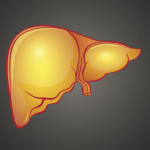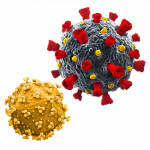 The length of time (duration) that someone has been infected with HIV, as well as his or her markers of blood vessel and immune inflammation, is predictive of clogging of the arteries (atherosclerosis), but the use of antiretrovirals (ARVs) is not. These data were presented Monday, February 28, at the 18th Conference on Retroviruses and Opportunistic Infections (CROI) in Boston.
The length of time (duration) that someone has been infected with HIV, as well as his or her markers of blood vessel and immune inflammation, is predictive of clogging of the arteries (atherosclerosis), but the use of antiretrovirals (ARVs) is not. These data were presented Monday, February 28, at the 18th Conference on Retroviruses and Opportunistic Infections (CROI) in Boston.
Numerous studies have looked at predictors of risk for developing cardiovascular disease. Some have focused primarily on the impact of ARV use; others have examined other factors, such as viral load, CD4 count and inflammatory markers. Unfortunately, none of these studies has been able to control very well for a known cardiovascular risk that is common among people with HIV: smoking.
Moise Desvarieux, PhD, and his colleagues set out to do just that, hoping to independently assess whether HIV, ARVs or inflammatory markers were associated with cardiovascular disease risk in non-smokers only.
To accomplish this, the team enrolled 100 HIV-positive men who had never smoked, and compared them with 50 HIV-negative men who were similar in age and other characteristics. To examine the effect of HIV duration and ARV use, they split the 100 HIV-positive participants into two groups. One group included people who had been living with HIV for more than four years, all of whom were on ARVs and had viral loads under 400 copies. The second group included people who were HIV positive for at least two years and had never taken ARV drugs. The average age was about 40, and most of the men were not overweight or obese. Rates of diabetes and hypertension were less than 2 percent.
To assess cardiovascular risk, Desvarieux’s team conducted a test that measures the thickness of the main artery in the neck (carotid intima media thickness [cIMT]). As for signs of cellular inflammation, the team looked at both markers that reduce inflammation (anti-inflammatory markers) such as interleukin-10 (IL-10), and markers that increase inflammation (pro-inflammatory markers) such as C-reactive protein (CRP).
Desvarieux and his colleagues found that duration of HIV strongly predicted the likelihood of having a higher cIMT, regardless of a person’s use of ARVs. People who had been HIV positive for about eight years had much thicker carotid arteries than people who had been positive for less than eight years.
As for inflammatory proteins, the strongest predictor of carotid thickness was having low levels of anti-inflammatory proteins. This held true regardless of the amount of pro-inflammatory proteins present. In fact, having high amounts of pro-inflammatory proteins was not as predictive as having low amounts of anti-inflammatory proteins.
Further research will be needed to confirm these results. Nevertheless, the authors state that their findings do indicate the duration of HIV infection, and perhaps uncontrolled HIV infection, is an important predictor of cardiovascular disease. What’s more, further attention should be paid to the role of anti-inflammatory proteins and not just pro-inflammatory proteins, which most studies have focused on.
Advertisement
Advertisement
Advertisement






Comments
Comments